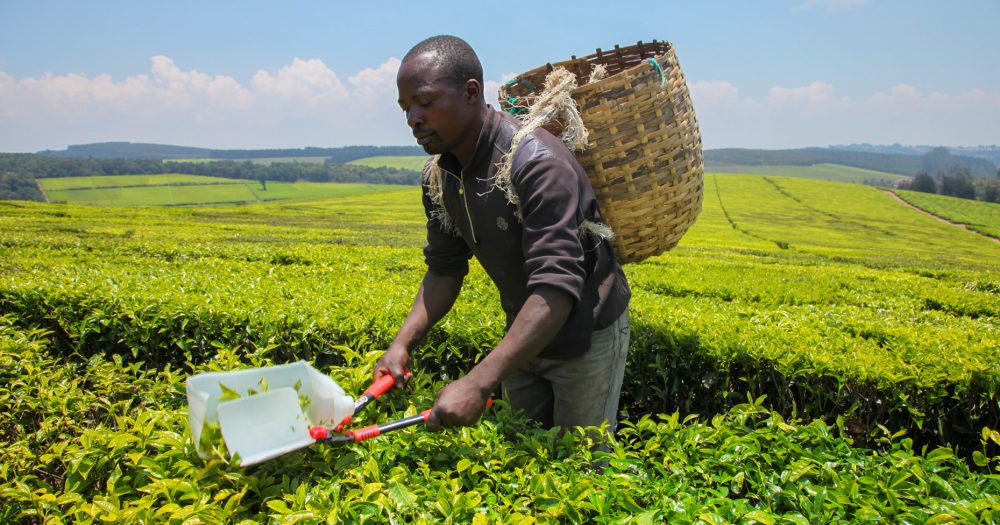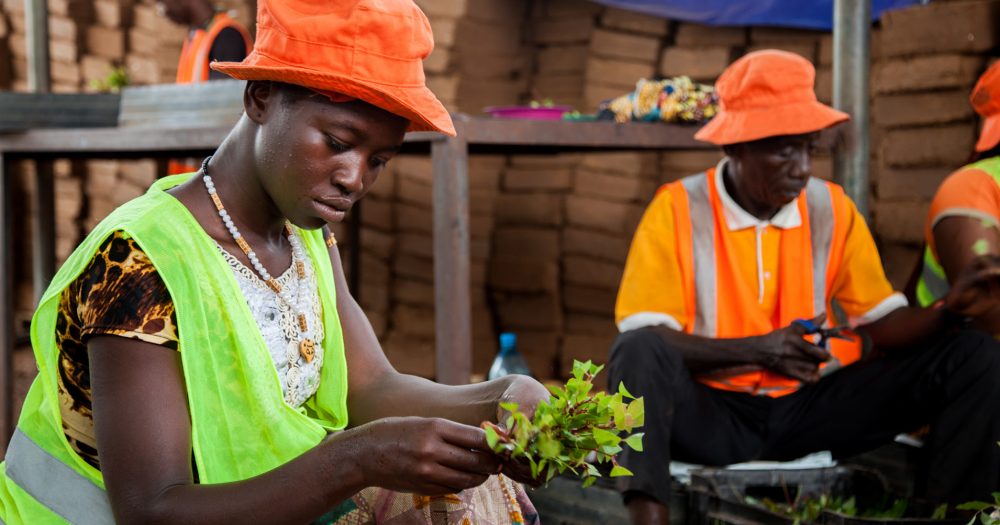Our investment
Description of the investment.
Description of the investment.
We have invested into Lona Group alongside a consortium including Phatisa Food Fund 2, Finnfund and Norfund, to continue the development of Lona Group into a diversified, vertically-integrated food business.
The investment will support Lona Group in creating enhanced economic opportunities in some of South Africa’s poorest areas, primarily for 500 low-income workers involved in the group’s farming, manufacturing, and food processing operations, by supporting the business’s expansion.
Impact information
Applies to investments made from 2019 onwards. The tabs in this section define what we expect to achieve through the investment, assessing the potential impact of the investment against six dimensions of impact. You can find more details on our methodology of assessing impact here.
Applies to investments made from 2019 onwards. The tabs in this section define what we expect to achieve through the investment, assessing the potential impact of the investment against six dimensions of impact. You can find more details on our methodology of assessing impact here.
What?
| Impact |
|---|
Create economic opportunities for low income workers in rural South Africa. |
|
|
How?
| How? |
|---|
|
Support expansion of a vertically integrated high value crops agribusiness enabling direct employment creation across its farming, manufacturing and food processing operations. |
Who?
| Stakeholder | Geography | Characteristics |
|---|---|---|
| Employees |
South Africa |
Workers are involved in the group’s land farming, manufacturing, and food processing operations. 40 per cent of total workforce are women; 78 per cent low-skilled workforce, 15 per cent semi-skilled, 7 per cent skilled. |
How much?
| Scale | Depth/Duration |
|---|---|
|
500 permanent jobs created by 2026 through growth funded by our investment. |
The depth of impact is expected to be significant as operations are located in deprived areas. Employment benefits include subsidised use of local clinic, accommodation, and transport allowances. A gender and diversity policy is being implemented. Employment terms expected to improve for seasonal workers as new products are introduced and the production season expanded. |
Contribution/additionality
| Contribution/additionality |
|---|
|
Risk
Alignment Risk
|
Environmental and social information
-
Environmental and social summary
A high-level description of the environmental and social aspects of the investment. This may include a summary of key environmental and social risks identified during environmental and social due diligence (ESDD); key elements of an environmental and social action plan (ESAP); or ways in which we plan to support the investee improve environmental and social standards, such as through their environmental and social management system (ESMS); as well as any other priority areas agreed with the investee.
-
Environmental and social risk
A risk category rating, which indicates the level of environmental and social risk associated with an investment. For an explanation of the categorisations used, see here. We consistently provide an environmental and social risk category for all investments screened from 2023 onwards.
Environmental and social summary
We agreed an ESAP focused on updates to their internal ESG framework at group level, the establishment of an ESG committee and the engagement of a dedicated internal ESG resource.
Environmental and social risk
Medium-High
Reporting and Complaints Mechanism
The Reporting and Complaints Mechanism allows anyone outside BII to report alleged breaches of the business integrity or environmental and social provisions of BII’s Policy on Responsible Investing. This includes breaches made by BII, a BII investee, or a portfolio company of a fund in which BII has invested. The Reporting and Complaints Mechanism Rules are available here. Reports and complaints can be submitted by email to reportsandcomplaints@bii.co.uk or by mail. See more details on our Reporting and Complaints Mechanism here.
For any other general enquiries contact us at enquiries@bii.co.uk
-
Key facts
- Last updated
:
When the last quarterly update of the website database occurred.
- December 2024
- Project number
:
An identifier number shared by investments in the same project.
- D5191
- Status
:
The current status of the investment (green flag for active and red flag for exited).
- Active
- Region
:
The geographical region where the country is located. We currently invest in Africa, South Asia, South East Asia and the Caribbean. In 2023, BII’s investment mandate was extended allowing it to invest in regional funds linked to Ukraine, with the majority of activity expected to begin post-war. Investments outside these regions were made prior to 2012 under previous investment mandates.
- Southern Africa
- Country
:
The countries where the investment delivers impact. Where impact is delivered in multiple countries, this is indicated.
- South Africa
- Sector
:
We prioritise those sectors that facilitate development and need our capital the most. Our priority sectors contribute towards many of the Sustainable Development Goals. They range from investing in the power infrastructure that will provide people with better access to electricity, to investing in financial institutions that direct capital to the individuals and businesses that need it the most.
- Business and consumer services
- Sub sector
:
The sub-sector that the investment is made into; this provides a more granular level of detail than the ‘sector’ information
- Food Products
- Investment type :
- Equity
- Start date :
- January 2022
- Amount :
- $6.69m
- Currency of investment :
- USD
- Domicile
:
The company or investment fund’s place of incorporation.
- Mauritius
We provide capital in the following ways: directly – through direct equity, direct debt, guarantees and other non-intermediated financial instruments; and indirectly – principally through investment funds.
For direct investments and fund investments, this is the date BII committed capital to the investments. This is typically the date on which legal agreements are signed by all parties.
For the portfolio companies of our fund investments, this is the date (either the month or the quarter) on which the fund committed capital to the portfolio company.
For direct equity investments, this is the date at which British International Investment exited the investment.
For debt investments, this is the date at which the final debt repayment was made.
For funds, this is the date at which the fund was terminated.
For underlying fund investments, this is the date at which the fund manager exited the investment.
The total amount committed, per financial instrument, per investment, on the date BII becomes subject to a binding legal obligation to provide funding or assume a contingent liability. This information is provided in US dollars.
For direct investments, this is the amount that BII has committed to the business or project. For fund investments, this is the amount BII has committed to the fund.
The currency in which the investment was made.
- 2X Gender Finance
:
Indicates whether the investment is ‘2X qualified’ using the 2X Challenge criteria. You can find out more here. It only applies to investments made from 2018 onwards, when the 2X Challenge was first launched.
- Fully qualified
- Last updated


